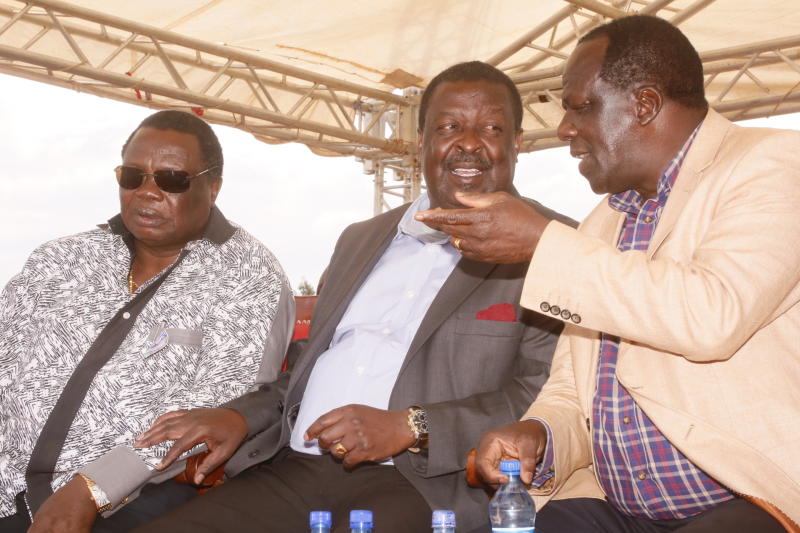×
The Standard e-Paper
Home To Bold Columnists

COTU Secretary-general Francis Atwoli, ANC party leader Musalia Mudavadi and Kakamega Governor Wycliffe Oparanya. [Benjamin Sakwa, Standard]
The call for Luhya unity is not new. Not surprisingly, it only comes alive every five years -coinciding with the elections. Yet, interestingly, the disunity among Luhya leaders becomes more apparent whenever such calls are made.